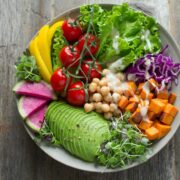Few things are as frustrating as not getting a good night’s sleep. Fortunately, the right foods can make a significant difference in how well you rest.
While this article focuses on foods that promote better sleep, it’s essential to understand that achieving quality sleep is a holistic process. Alongside dietary adjustments, pharmaceutical treatments, holistic practices, and an optimized sleep environment all play crucial roles. Let’s dive into these elements to complement your dietary approach.
For those dealing with sleep disorders, pharmaceutical options may be necessary. Medications like melatonin supplements, sedative-hypnotics, and certain antidepressants are commonly prescribed to aid sleep. However, it’s vital to consult a healthcare professional before starting any medication, as they can provide personalized advice based on your specific health needs.
Narcolepsy, a chronic sleep disorder characterized by excessive daytime sleepiness and sudden sleep attacks, often requires targeted treatments. Medications such as modafinil, sodium oxybate, and stimulants are commonly used to manage symptoms. Additionally, lifestyle changes and scheduled naps can help alleviate the condition’s effects.
Beyond medications, therapeutic and holistic approaches can significantly improve sleep quality. Techniques like cognitive-behavioral therapy (CBT) for insomnia, relaxation methods, yoga, and meditation have been shown to enhance sleep. Maintaining a consistent sleep schedule and creating a bedtime routine also help establish healthy sleep patterns.
Navigating the financial aspects of sleep treatments is important. Medicare may cover certain sleep-related healthcare costs, such as consultations with sleep specialists or treatments for sleep disorders. Additionally, many health insurance plans offer coverage for therapeutic interventions, helping to manage the financial aspects of sleep treatments.
Creating the ideal sleep environment is crucial. The right mattress and sleep accessories can make a significant difference. Look for mattresses that support your preferred sleeping position and alleviate pressure points. Accessories like ergonomic pillows, breathable bedding, and blackout curtains also contribute to a conducive sleep environment.
Having explored various ways to improve sleep—from pharmaceutical and therapeutic solutions to creating the perfect sleep environment—let’s now focus on the dietary aspect. The following section on the best foods to help you sleep will provide valuable insights into how your diet can significantly impact your sleep quality, offering a well-rounded approach to achieving restful nights.
1. Kiwis
Kiwis are among the most nutritious fruits and have been proven to aid sleep. Studies show that kiwis contain natural sleep-inducing compounds, and consuming them regularly can enhance sleep quality. Whether eaten alone or with other fruits like apples, bananas, and oranges, kiwis make a delicious and effective sleep aid.
2. Strawberries
Strawberries, along with other melatonin-rich fruits like bananas and pears, naturally boost melatonin production in the brain, promoting better sleep. Incorporating strawberries into your evening snack or smoothies can help you achieve a restful night.
3. Salmon
Salmon is rich in omega-3 fatty acids, which reduce inflammation and promote sleep. These fatty acids help produce hormones that alleviate depression and anxiety, common barriers to good sleep. Regular consumption of salmon can improve both sleep quality and overall health.
4. Dairy
Vitamin D-fortified dairy products, such as certain types of milk and cheese, can aid sleep by raising cortisol levels—a hormone that helps you feel tired. When choosing dairy, opt for vitamin D varieties to maximize sleep benefits.
5. Whole Wheat Bread
Whole wheat bread, rich in complex carbohydrates and fiber, is excellent for inducing sleep. The carbs help lower blood glucose levels, promoting faster sleep onset. Incorporating whole grains into your diet, especially at breakfast, can improve your overall sleep quality.
6. Leafy Greens
Leafy greens are packed with antioxidants and vitamins that detoxify the body and enhance serotonin levels, helping you sleep better. However, variety is key—broccoli sprouts and asparagus are also excellent choices for boosting sleep.
7. Orange Juice
Orange juice is rich in vitamin C, which supports melatonin production and strengthens the immune system. Although oranges can be costly, orange juice concentrate or homemade juice can be economical alternatives that still provide sleep benefits.
8. Mediterranean-Inspired Dishes
Avoid spicy foods before bed, as they can disrupt sleep. Instead, opt for Mediterranean-inspired dishes rich in healthy fats and proteins, such as salmon and nuts, which promote restful sleep and support overall health.
Finally, sleep is essential for recovery and overall well-being. Consistently eating foods that promote sleep can have a lasting positive impact on your health. Avoid junk and processed foods, as they are not conducive to good sleep.
Disclaimer
This article is for informational purposes only and is not intended to substitute professional consultation or advice related to your health or finances. No reference to an identifiable individual or company is intended as an endorsement thereof. Some or all of this article may have been generated using artificial intelligence and may contain inaccuracies or unreliable information. Readers should consult with professionals for personal advice.



















Comments